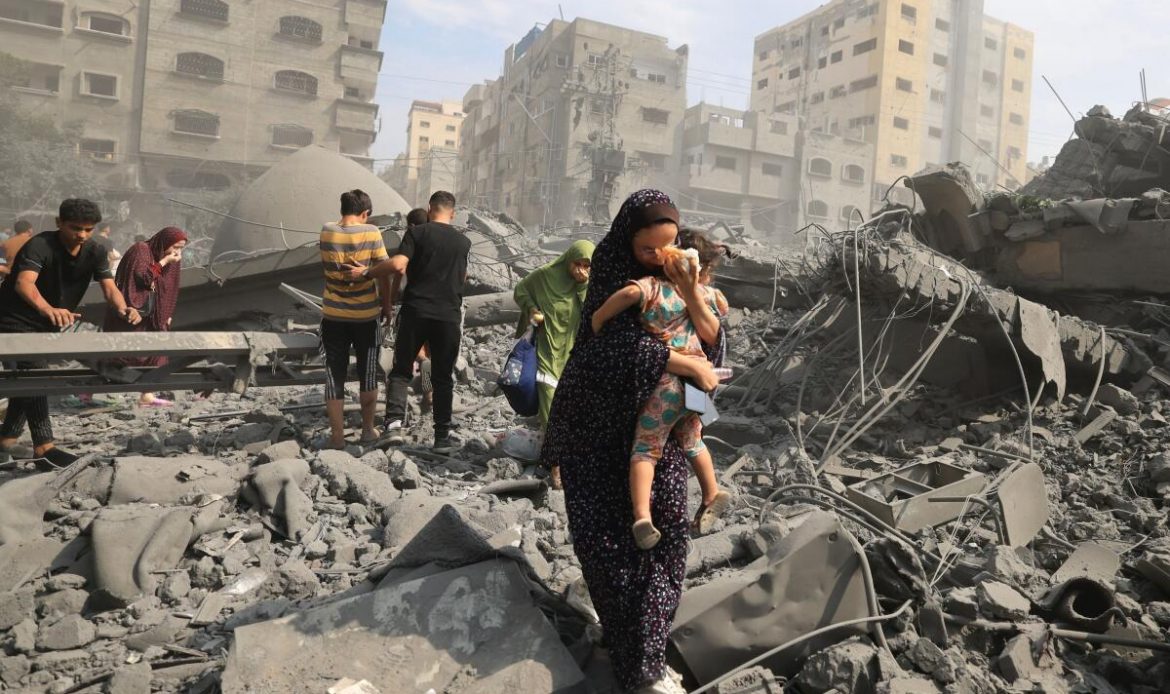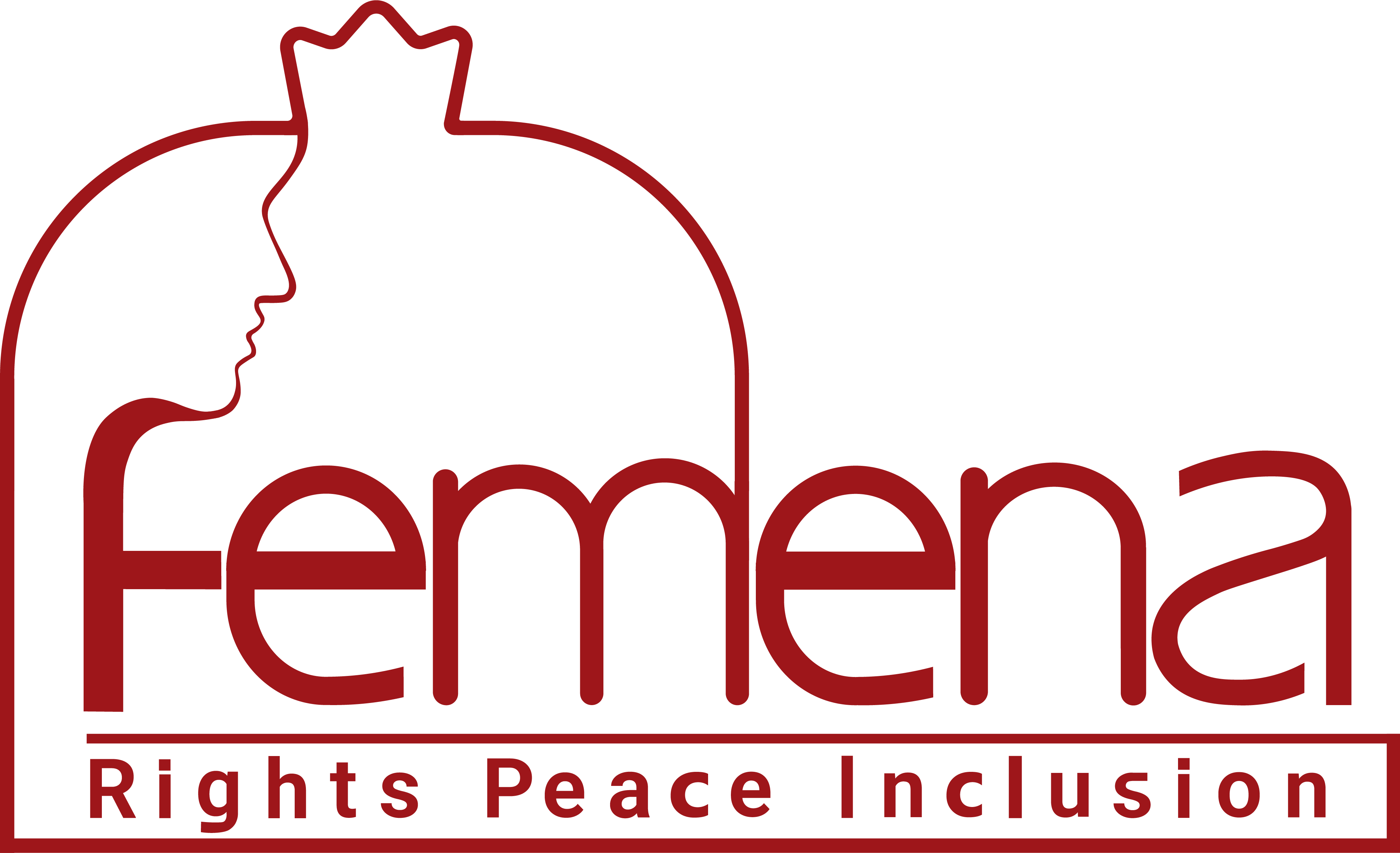
Femena calls on the international community to demand an immediate halt to the brutal and escalating violence that the state of Israel has unleashed upon Palestinians in the Gaza Strip.
In the past five days, Israeli war planes have pummeled the Gaza Strip, one of the most densely populated parts of the world, with airstrikes that have killed over 1,400 Palestinians and wounded over 6,000, and flattened entire residential neighborhoods. Israel’s imposition of a complete siege on the Gaza Strip – cutting off electricity, food, and medicine to the territory – will spawn an unprecedented humanitarian crisis. The residents of the Gaza Strip have also virtually run out of the fuel they use to power generators and are unable to acquire more. The territory is pitched into darkness – providing a cover for Israel to continue ravaging the population. Alarmingly, Israel has also launched air strikes at the Rafah Border crossing – the only means of escape for any Gazans wanting to flee the conflict.
The disproportionate use of force, the indiscriminate killing of civilians, and the collective punishment of the entire population of the Gaza Strip are clear violations of international humanitarian law.
Femena is deeply disturbed by the fact that Israel’s allies have given it a green light to retaliate against Hamas with unrestrained force – even as the gross asymmetry of power between one of the most militarized countries of the world and Hamas is glaringly apparent.
Femena condemns the targeting of civilians by both Hamas and Israeli forces and calls for an immediate ceasefire. The current situation however, cannot be viewed without an understanding of its historical context.
The Gaza Strip, a 225 square mile Mediterranean coastal enclave, is home to an estimated 2 million Palestinians, many of whom are descendants of Palestinians who became refugees in 1948 after being expelled from their homes and unable to return there. In 1949, pursuant to an UN-brokered armistice that divided historic Palestine, the Gaza Strip was placed under Egyptian Administration. Following the 1967 war, Israel occupied the Gaza Strip (and the West Bank) – an occupation deemed illegal under international law and condemned in numerous resolutions of the United Nations. Israel then established a military administration to govern the territories, under which Palestinians were denied their most basic civil and political rights.
The Gaza Strip remained under full Israel occupation until August of 2005, when Israel forced some 7,800 of its settlers living there to evacuate. Although Israel “withdrew,” from the Strip, it has continued to maintain control of exit and entry of people and goods into Gaza and control of its airspace and coastal waters. The Gaza Strip was sealed by a wall adhering closely to the Green Line, with the only entry and exit for Palestinians through several checkpoints controlled by Israel and Egypt.
Since the 2006 elections and Hamas’s rise to power, Israel has imposed a blockade on the Gaza Strip. Under this draconian blockade, which has devastated Gaza’s economy, the more than 2 million Palestinians living there have been unable to travel without Israeli permission and have been deprived of basic goods and supplies. Human rights organizations and the UN have repeatedly condemned the siege and blockade of Gaza as a form of collective punishment that is illegal under international law.
Additionally, since 2008, Israel has launched four large-scale military offenses against Gaza’s captive population. These military offensives, which have included the bombing of UN hospitals and schools sheltering civilians, have led to the death of more than 6,000 Palestinians. Despite the documented war crimes committed by Israel, it has never been held accountable for these actions.
A growing number of prominent human rights organizations have aptly begun to use the term apartheid to describe Israeli policies with respect to Palestinians, including, Israel’s brutal and punishing siege of Gaza for the past decades, Israel’s occupation of the West Bank, its detention of thousands of Palestinian prisoners, its violent expansion of illegal settlements and further annexations of land, and its restrictions on the movements of Palestinians through checkpoints which has continued unabated,It is against this backdrop that we must view the current violence, for it did not spark in a vacuum, but emerged as a result of the intense and systematic violation of the rights of Palestinians by Israel and decades of humiliation undermining their humanity and dignity.
Femena reminds the international community that there can be no solution to this cycle of violence until the underlying injustices suffered by the Palestinian people are addressed.
We are dismayed at the clear double standard in evidence when the international community supports the right to self-determination for some people, but not others.
We therefore call upon the international community to demand that Israel immediately ceases its current military offensive, and that an end be put to the decades of occupation that have robbed generations of Palestinians of their dignity and freedom.


